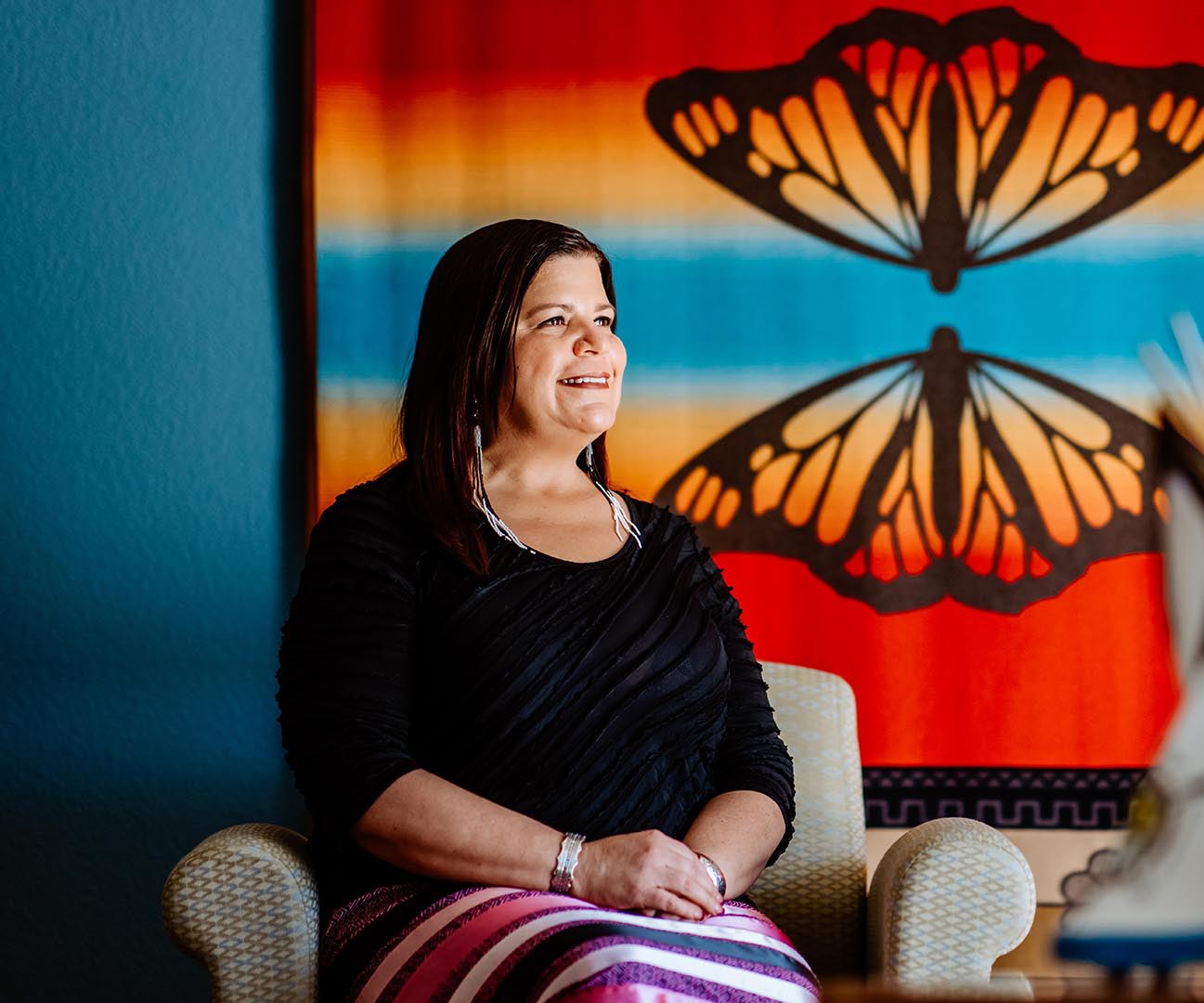
2 minute read
EDUCATIONAL EQUALIZER
Sarah EchoHawk describes education as “the great equalizer.”
EchoHawk, CEO of the American Indian Science and Engineering Society and a citizen of the Pawnee Nation of Oklahoma, has dedicated her professional life to helping Indigenous students access higher education.
She recently spearheaded the first-ever national study on college affordability for Indigenous students. The research, a collaboration among four Native American scholarship providers, found that affordability was the primary obstacle to college completion for Native students.
Through her life’s work, EchoHawk has upheld her family’s legacy. John E. EchoHawk, her father and the founder of the Native American Rights Fund, instilled in her the power of education.
“As an Indigenous person, you have to get your education because that is the only thing that will level the playing field,” she said. “It’s something no one can take away from you.”
EchoHawk credits her time at Metropolitan State University of Denver as the “spark that lit the fire” in her work of uplifting Indigenous peoples. She said the sense of “invisibility” she felt growing up dissipated when she found her place at the University. Thanks to the mentorship of Oneida Meranto, Ph.D., a former professor in the Political Science Department, EchoHawk connected with other Native American students and began to understand the importance of building supportive communities for Indigenous students at universities.
EchoHawk completed her degree in 1999 and was the first student to graduate with a minor in Native American Studies. A student internship at the American Indian College Fund launched her career.
While she and her research collaborators identified affordability as the primary hurdle for Indigenous students in college, EchoHawk said there are more challenges to address.
“We can wrap our students in all these support services and give them money,” she said, “but if they enter these institutions and there’s no sense of community, it’s going to be much more difficult for them to succeed.”










